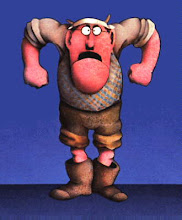…And other superlatives. We all recognize that self anointed appellation for a famous and iconic light American Lager. But that is not the topic for this week’s missive. I am referring to the increasing emergence of extreme beers. I am referring to beers with high alcohol by volume, tongue blistering quantities of hops and additives ranging from Muscat grapes to espresso. I am referring to the proliferation of Über/Imperial/Double/Triple (insert name here) "Style"Ale/Lagers.
In the beginning of the craft brewing movement there were always high gravity beers. Notably that Holy Grail of brewing the Russian Imperial Stout- a historic style that was first brewed in Burton-On-Trent at the request of the Tsar. This mighty brew was crafted to withstand the rigors of a sailing vessel Baltic Passage from Liverpool to Saint Petersburg thence overland to Moscow. High in alcohol and heavily hopped the style was the perfect accompaniment to a rich feast that might feature a whole Volga Sturgeon, Wooly Mammoth meat recovered from the Siberian permafrost and pies made from hundreds of songbirds. A mighty brew indeed to accompany such a rich repast. There are other traditional heavyweights: the so called "Old Ales", Barleywines, Doppelbocks, Eisbocks and Baltic Porters and of course the ever popular, despite being taste challenged, American Malt Liquor. But lately it seems every brewer is getting on the high gravity band wagon and it has morphed into other styles "Double White/Wit", Imperial or Double India Pale and Imperial Pilsner to name three.
The Wit and Pilsner styles were always brewed as a hot weather quencher with mild hop profiles, a balanced light malt presence, floral aromas and moderate alcohol levels. A refreshing and "genteel" brew well suited for a hot afternoon. Not content to leave well enough alone, some brewers have decided to push the envelope. Traditional styles have had there hop profiles dramatically increased and their malt levels doubled or tripled. The resulting concoctions bear little resemblance to their forbears. I often find the only indication of the brews "origin" is on the packaging. Somehow the idea of a 9% alcohol "Imperial Pilsner" is not appealing to me. I am all for taste calling but something an "Imperial Pilsner" simply because you amped up the ABV is somewhat disrespectful of the style. Southampton Brewing brews a Double White while flavorful in some regards it seems to be an attempt to brew stronger ale because you can.
Do I have an answer for this proliferation of "Über" styles and super brews? No, indeed I am all for the judicious application of individualism to a style to create a new standard of excellence- but do we always has to have more alcohol in there? What is wrong with quaffable session beers anyway? Take a "Double White" as an example. Why not stick with a solid white and use a locally grown grain bill? Age the hops before brewing, as was done on the original? Change the types of adjunct flavorings such as the type of dried orange peel used or another type of citrus rind? Or Kaffir Lime leaves? Cultivate a new yeast strain? In other words go ahead and try to make the brew your own but brew for more Flavor not more alcohol.
An interesting tidbit as respects River Horse Brewing, a Garden State brewer whose beers, in the past where generally unadventurous an underwhelming. The buyer at our local whole Foods advises that they have a new management and brewing team. This apparently has resulted in a new brewing philosophy and some darn fine brews. I recently enjoyed their Oatmeal Milk Stout and found it wonderfully rich and quite tasty. The Oatmeal gave it a very silky mouth feel and the hint of lactose was paired nicely with an appropriate hopping level. All in all a solid brew and I am hoping it is a harbinger of the great things to come form River Horse. I will have to re-try some of their standard brews and give them a fair chance. We all need to be mindful that in our fragile economy we need to support our local brewers or we risk sliding back into a an era where the only beer available is mass market beer.
skip to main |
skip to sidebar

Sandy Hook Lighthouse
Being, in the main, a discussion of all things beer. However I reserve the right to wander aimlessly from topic to topic, opining on things as I see fit...
Blog Archive
Xobni
About Me
Disclaimer
All opinions expressed herein are mine unless I pirated them from someone else, in which case they are still mine, possession being nine-tenths of the law and being a pushy person from Jersey pretty much deals with the remaining tenth...
Bringing the Gospel of Good Beer to the Bayshore

Sandy Hook Lighthouse
